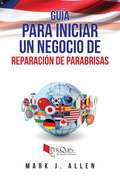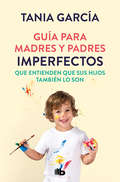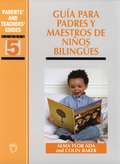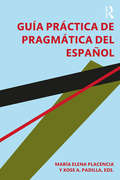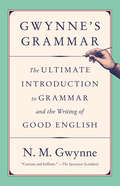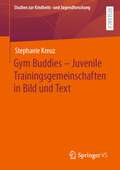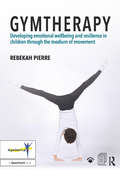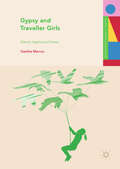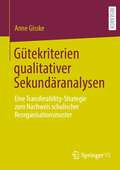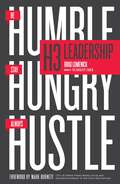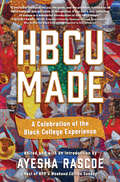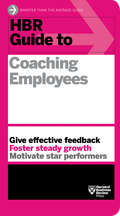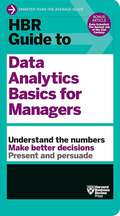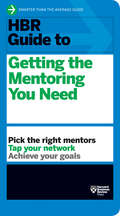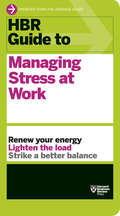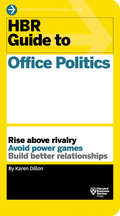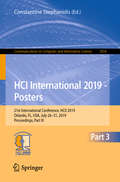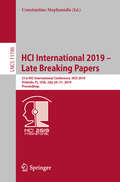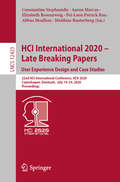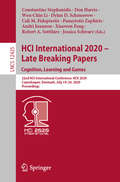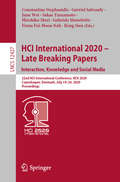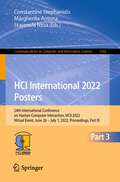- Table View
- List View
Guía para iniciar un negocio de reparación de parabrisas
by Mark J. AllenGuía para iniciar un negocio de reparación de parabrisas, por Mark J. Allen Esta guía de instrucciones contiene méodos para iniciar y anunciar un negocio exitoso. Esta guía práctica te enseñará técnicas efectivas para crear un negocio rentable de limpieza de parabrisas, hasta en estos tiempos de incertidumbre económica. Como resultado de leer esta guía, aprenderás trucos y consejos para ayudarte a empezar tu negocio con inversión mínima. Aprenderás a elegir correctamente la estructura legal de tu empresa. También aprenderás qué errrores cometen los dueños de empresas nuevas y cómo evitarlos. Si quieres ganar más dinero, rápidamente, esta guía es para ti. Además de consejos para ahorrar tiempo, ideas efectivas de mercadeo y secretos de negocios de un conocedor, también tendrás un plan de acción fácil de entender paso a paso que elimina la usual inseguridad al empezar un negocio propio. Empieza a ser tu propio jefe y haz tu pedido hoy.
Guía para madres y padres imperfectos que saben que sus hijos también lo son
by Tania García«Aunque no somos perfectos, debemos trabajar día a día para ser cada vez mejores madres y padres, guiando a nuestros hijos hacia un presente y un futuro mejor, el que desean y merecen.» Para ayudar a nuestros hijos e hijas a ser personas íntegras, respetuosas y responsables, que sepan dialogar y que amen y se dejen amar, hay que educarlos con principios claros basados en el respeto, la empatía y el amor incondicional. Hay que olvidar las discusiones y los gritos para educar en el respeto propio y mutuo, la coherencia y el cariño y así llegar a una convivencia armoniosa, sabiendo superar unidos las adversidades. Tania García, reconocida experta en educación, nos invita en esta guía a reconstruirnos y desterrar los mitos sociales en cuanto a la infancia, y nos aporta estrategias para vivir y convivir en familia, estableciendo los límites necesarios y reconociendo las emociones... pero sobre todo, disfrutando del día a día.
Guía para padres y maestros de niños bilingües
by Alma Flor Ada Colin BakerThis is a practical introduction to bilingualism answering the questions most frequently asked by parents and teachers on raising and educating bilingual children. Both authors draw on their academic expertise and ample field experience to provide straightforward answers, which contemplate multiple types of bilingual families and diverse societal conditions.
Guía práctica de pragmática del español
by María Elena Placencia Xose A. PadillaGuía práctica de pragmática del español es un texto introductorio en español. Ofrece introducciones accesibles a una importante variedad de teorías y conceptos imprescindibles en el campo de la pragmática del español. El libro contiene 22 capítulos divididos en seis secciones que cubren: actos de habla, formas de tratamiento, cortesía y descortesía, comunicación y persuasión, discurso digital, metodología en pragmática. Los diferentes capítulos incluyen ejemplos tomados de la comunicación cara a cara y en línea, lecturas (recomendadas y complementarias), y preguntas y actividades que toman como punto de partida diferentes variedades del español y diferentes contextos sociales, culturales y/o políticos en el mundo hispanohablante. Constituye un recurso valioso para estudiantes de pragmática y lingüística hispánica, tanto hablantes nativos como estudiantes de español avanzado.
Gwynne's Grammar: The Ultimate Introduction to Grammar and the Writing of Good English
by N. M. GwynneAnxious about apostrophes? In a pickle over your pronouns and prepositions? Fear not--Mr. Gwynne is here with his wonderfully concise and highly enjoyable book of grammar. Within these pages, adults and children alike will find all they need to rediscover this lost science and sharpen up their skills. Mr. Gwynne believes that happiness depends at least partly on good grammar--and Mr. Gwynne is never wrong.From the Hardcover edition.dictated to be the right and the wrong. His teaching method is also defiantly old school: no one can follow a rule he hasn't committed to memory. But not all rules are equal. For a country whose only broadly subscribed guide to writing is Strunk and White, Mr. Gwynne performs a radical procedure. He presents its original seed: Strunk's 1918 essay, which E. B. White expanded. But neither form was ever meant as a guide to grammar, and so Mr. Gwynne presents only the kernel of Strunk's useful advice as a companion: a guide to putting words together nicely set within Gwynne's wisdom about putting them together correctly. The result is the last word on the subject anyone should need.
Gym Buddies – Juvenile Trainingsgemeinschaften in Bild und Text (Studien zur Kindheits- und Jugendforschung #9)
by Stephanie KreuzStephanie Kreuz betritt mit ihrer Forschung in zweierlei Hinsicht Neuland: Mit ihrer mikrosoziologischen Analyse der Trainingsgemeinschaften Jugendlicher und junger Erwachsener im Fitnessstudio nimmt sie kommerzialisierte Handlungsräume in den Blick, welche bislang in der erziehungs- und sozialwissenschaftlichen Jugendforschung als potentielle Sozialisationsräume deutlich unterbelichtet sind. Auf methodologischer Ebene wählt sie mit dem Forschungszugang über Gruppendiskussion und videobasierte Selbstaufzeichnung ein innovatives Forschungsdesign. Die methodologisch anspruchsvolle Triangulation des empirischen Materials vollzieht sie ausgehend von einer neuartigen transferierenden Auswertungsstrategie, welche die textbasierten und audiovisuellen Daten konsequent miteinander vermittelnd in den Blick nimmt.
Gymtherapy: Developing emotional wellbeing and resilience in children through the medium of movement
by Rebekah PierreThis highly practical resource introduces the concept of ‘Gymtherapy’; a pioneering approach to working with children that uses movement as a means of promoting emotional wellbeing. Gymtherapy brings together the physical and emotional benefits of activity alongside the importance of safeguarding and supporting children, particularly those who are socio-economically deprived or emotionally vulnerable. Written in an accessible and vibrant style, Gymtherapy provides a full programme of lesson plans, structured across five key areas: Identity and Self Esteem, Mindfulness, Anger Expression, Protective Behaviour and Gender Stereotypes. Each lesson plan is based on accessible, tried and tested strategies, and outlines learning objectives, equipment needed and step-by-step instructions for facilitating practical activities. The chapters are illustrated with engaging real-life examples, case studies, survivor stories and tips, while at the same time linking practice to the underpinning social theory. Gymtherapy is an invaluable guide for teachers, social workers, school leaders and anyone with an interest in providing for the welfare and wellbeing of the children they work with.
Gypsy and Traveller Girls: Silence, Agency and Power (Studies in Childhood and Youth)
by Geetha MarcusThis book presents the untold stories of Gypsy and Traveller girls living in Scotland. Drawing on accounts of the girls’ lives and offering space for their voices to be heard, the author addresses contemporary and traditional stereotypes and racialised misconceptions of Gypsies and Travellers. Marcus explores how the stubborn persistence of these negative views appears to contribute to policies and practices of neglect, inertia or intervention that often aim to ‘civilise’ and further assimilate these communities into the mainstream settled population. It is against this backdrop that the book exposes the girls’ racialised and gendered experiences, which impact on their struggles as young people to realise their potential and future prospects. Their narratives reveal the strengths of a distinct community, and the complexity of their silence and agency within the patriarchal structures that pervade the private spaces of home and the public spaces of education. This study also invites the reader to reflect on how the experiences of Gypsy and Traveller girls compares with young women from other social backgrounds, and questions if there is more that binds us than divides us as women in the modern world. Gypsy and Traveller Girls will be of interest to students and scholars across a range of disciplines, including sociology, education, gender studies and social policy.
Gütekriterien qualitativer Sekundäranalysen: Eine Transferability-Strategie zum Nachweis schulischer Reorganisationsmuster
by Anne GisskeDie Wiederverwendung komplexen Datenmaterials rückt auch im qualitativen Paradigma in den Fokus. Qualitative Sekundäranalysen wie die DaproRe-Studie sind aufgrund des festgelegten Samplings vom Kontextwissen aus den Primärstudien abhängig, das den Geltungsbereich der sekundäranalytischen Ergebnisse abbildet. Wie die Validität einer daraus resultierenden Theorie untersucht bzw. nachvollziehbar gemacht werden kann, stellt eine methodologische Frage von Gütekriterien dar. Die geringe Verbreitung dieses Forschungsdesigns spiegelt sich auch in der fehlenden Berücksichtigung in den Vorschlägen für qualitative Gütekriterien wider. Einen Ansatzpunkt bietet das Konzept der transferability von Lincoln & Guba (1985), die argumentieren, dass Ergebnisse auf möglichst kongruente Kontexte übertragbar sind. Unter Einbezug kongruenter sowie konträrer Kontexte wurde dieses Konzept zu einer Transferability-Strategie weiterentwickelt. Als theoretisches Ablaufmodell ermöglicht sie die Untersuchung der Reichweite von sekundäranalytischen Ergebnissen und kann somit dazu beitragen, die Güte von Sekundäranalysen nachvollziehbar zu machen.
H3 Leadership: Be Humble. Stay Hungry. Always Hustle.
by Brad LomenickThe patterns we cultivate shape the person we each become.Be Humble. Stay Hungry. Always Hustle. These powerful words describe the leader who is willing to work hard, get it done, and make sure it&’s not about him or her; the leader who knows that influence is about developing the right habits for success.Brad Lomenick, former president of Catalyst, shares his hard-earned insights from more than two decades of work alongside thought-leaders such as Jim Collins and Malcom Gladwell, Fortune 500 CEOs and start-up entrepreneurs.Operating within the framework of three core character qualities – humble, hungry, hustle – Lomenick identifies 20 essential leadership habits that help readers embody those qualities, including:Staying open and sharing the real you with othersOwning your convictions and sticking to your principlesDeveloping an appetite for what&’s nextPursuing innovation by staying current, creative, and engagedDemanding excellence by setting standards that scare youFostering collaboration with colleagues and competitorsOffering practical steps to embrace these habits, H3 Leadership provides a simple but effective guide on how to lead well in whatever capacity the reader may be in.
HBCU Made: A Celebration of the Black College Experience
by Ayesha RascoeIn this joyous essay collection edited by NPR's Ayesha Rascoe, celebrities and other alumni provide testimonials about their experience attending historically Black college universities–which shaped their lives and made them who they are today. With a diverse set of contributors, including Oprah Winfrey, Stacey Abrams, and Branford Marsalis, HBCU Made celebrates the experience of going to a historically Black college or university. In moving essays, a wide range of alums share their accounts of how they chose their HBCU, their first days on campus, the dynamic atmosphere, and how they were shaped by their rigorous training. A collection that brims with insight and school spirit, HBCU Made is a perfect gift for each generation of prospective students and graduates to come.
HBJ Language: Medallion Edition (Grade #4)
by Harcourt Brace Jovanovich StaffLanguage Medallion: Grade 4 is an English book that helps the readers communicate correctly and effectively in English.
HBR Guide to Coaching Employees
by Harvard Business ReviewHelp your employees help themselves.As a manager in today's business world, you can't just tell your direct reports what to do: You need to help them make their own decisions, enable them to solve tough problems, and actively develop their skills on the job.Whether you have a star on your team who's eager to advance, an underperformer who's dragging the group down, or a steady contributor who feels bored and neglected, you need to coach them: Help shape their goals-and support their efforts to achieve them.In the HBR Guide to Coaching Employees you'll learn how to: Create realistic but inspiring plans for growth Ask the right questions to engage your employees in the development process Give them room to grapple with problems and discover solutions Allow them to make the most of their expertise while compelling them to stretch and grow Give them feedback they'll actually apply Balance coaching with the rest of your workloadArm yourself with the advice you need to succeed on the job, from a source you trust. Packed with how-to essentials from leading experts, the HBR Guides provide smart answers to your most pressing work challenges.
HBR Guide to Coaching Employees
by Harvard Business ReviewHelp your employees help themselves. As a manager in today’s business world, you can’t just tell your direct reports what to do: You need to help them make their own decisions, enable them to solve tough problems, and actively develop their skills on the job. Whether you have a star on your team who’s eager to advance, an underperformer who’s dragging the group down, or a steady contributor who feels bored and neglected, you need to coach them: Help shape their goals-and support their efforts to achieve them. In the HBR Guide to Coaching Employees you’ll learn how to: Create realistic but inspiring plans for growth Ask the right questions to engage your employees in the development process Give them room to grapple with problems and discover solutions Allow them to make the most of their expertise while compelling them to stretch and grow Give them feedback they’ll actually apply Balance coaching with the rest of your workload Arm yourself with the advice you need to succeed on the job, from a source you trust. Packed with how-to essentials from leading experts, the HBR Guides provide smart answers to your most pressing work challenges.
HBR Guide to Coaching Employees (HBR Guide Series)
by Harvard Business ReviewHelp your employees help themselves.As a manager in today's business world, you can't just tell your direct reports what to do: You need to help them make their own decisions, enable them to solve tough problems, and actively develop their skills on the job.Whether you have a star on your team who's eager to advance, an underperformer who's dragging the group down, or a steady contributor who feels bored and neglected, you need to coach them: Help shape their goals-and support their efforts to achieve them.In the HBR Guide to Coaching Employees you'll learn how to: Create realistic but inspiring plans for growth Ask the right questions to engage your employees in the development process Give them room to grapple with problems and discover solutions Allow them to make the most of their expertise while compelling them to stretch and grow Give them feedback they'll actually apply Balance coaching with the rest of your workloadArm yourself with the advice you need to succeed on the job, from a source you trust. Packed with how-to essentials from leading experts, the HBR Guides provide smart answers to your most pressing work challenges.
HBR Guide to Data Analytics Basics for Managers (Hbr Guide Ser.)
by Harvard Business ReviewDon't let a fear of numbers hold you back. <p><p> Today's business environment brings with it an onslaught of data. Now more than ever, managers must know how to tease insight from data--to understand where the numbers come from, make sense of them, and use them to inform tough decisions. How do you get started? <p><p> Whether you're working with data experts or running your own tests, you'll find answers in the HBR Guide to Data Analytics Basics for Managers. This book describes three key steps in the data analysis process, so you can get the information you need, study the data, and communicate your findings to others. <p><p> You'll learn how to: <p><p> Identify the metrics you need to measure<p><p> Run experiments and A/B tests<p><p> Ask the right questions of your data experts<p><p> Understand statistical terms and concepts<p><p> Create effective charts and visualizations<p><p> Avoid common mistakes
HBR Guide to Getting the Mentoring You Need
by Harvard Business ReviewFind the right person to help supercharge your career.Whether you're eyeing a specific leadership role, hoping to advance your skills, or simply looking to broaden your professional network, you need to find someone who can help. Wait for a senior manager to come looking for you-and you'll probably be waiting forever.Instead, you need to find the mentoring that will help you achieve your goals. Managed correctly, mentoring is a powerful and efficient tool for moving up.The HBR Guide to Getting the Mentoring You Need will help you get it right. You'll learn how to: Find new ways to stand out in your organization Set clear and realistic development goals Identify and build relationships with influential sponsors Give back and bring value to mentors and senior advisers Evaluate your progress in reaching your professional goals
HBR Guide to Managing Stress at Work
by Harvard Business ReviewAre you suffering from work-related stress?Feeling overwhelmed, exhausted, and short-tempered at work-and at home? Then you may have too much stress in your life. Stress is a serious problem that impacts not only your mental and physical health, but also your loved ones and your organization. So what can you do to address it?The HBR Guide to Managing Stress at Work will help you find a sustainable solution. It will help you reach the goal of getting on an even keel-and staying there. You'll learn how to: Harness stress so it spurs, not hinders, productivity Create realistic and manageable routines Aim for progress, not perfection Make the case for a flexible schedule Ease the physical tension of spending too much time at your computer Renew yourself physically, mentally, and emotionally
HBR Guide to Office Politics
by Karen DillonDon't let destructive drama sideline your career.Every organization has its share of political drama: Personalities clash. Agendas compete. Turf wars erupt. But you need to work productively with your colleagues-even difficult ones-for the good of your organization and your career. How can you do that without compromising your personal values? By acknowledging that power dynamics and unwritten rules exist-and navigating them constructively.The HBR Guide to Office Politics will help you succeed at work without being a power grabber or a corporate climber. Instead you'll cultivate a political strategy that's authentic to you. You'll learn how to: Gain influence without losing your integrity Contend with backstabbers and bullies Work through tough conversations Manage tensions when resources are scarce Get your share of choice assignments Accept that not all conflict is badArm yourself with the advice you need to succeed on the job, from a source you trust. Packed with how-to essentials from leading experts, the HBR Guides provide smart answers to your most pressing work challenges.
HCI International 2019 - Posters: 21st International Conference, HCII 2019, Orlando, FL, USA, July 26–31, 2019, Proceedings, Part III (Communications in Computer and Information Science #1034)
by Constantine StephanidisThe three-volume set CCIS 1032, CCIS 1033, and CCIS 1034 contains the extended abstracts of the posters presented during the 21st International Conference on Human-Computer Interaction, HCII 2019, which took place in Orlando, Florida, in July 2019.The total of 1274 papers and 209 posters included in the 35 HCII 2019 proceedings volumes was carefully reviewed and selected from 5029 submissions.The 208 papers presented in these three volumes are organized in topical sections as follows: Part I: design, development and evaluation methods and technique; multimodal Interaction; security and trust; accessibility and universal access; design and user experience case studies. Part II:interacting with games; human robot interaction; AI and machine learning in HCI; physiological measuring; object, motion and activity recognition; virtual and augmented reality; intelligent interactive environments. Part III: new trends in social media; HCI in business; learning technologies; HCI in transport and autonomous driving; HCI for health and well-being.
HCI International 2019 – Late Breaking Papers: 21st HCI International Conference, HCII 2019, Orlando, FL, USA, July 26–31, 2019, Proceedings (Lecture Notes in Computer Science #11786)
by Constantine StephanidisThis year the 21st International Conference on Human-Computer Interaction, HCII 2019, which was held in Orlando, Florida, USA, in July 2019, introduced the additional option of "late-breaking work", which applied both for papers and posters with the corresponding volumes of the proceedings. The 47 late-breaking papers included in this volume were published after the conference has taken place. They were organized in the following topical sections: user experience design and evaluation; information, visualization, and decision making; virtual and augmented reality; learning and games; human and task models in HCI; and design and user experience case studies.
HCI International 2020 - Late Breaking Papers: 22nd HCI International Conference, HCII 2020, Copenhagen, Denmark, July 19–24, 2020, Proceedings (Lecture Notes in Computer Science #12423)
by Aaron Marcus Constantine Stephanidis Pei-Luen Patrick Rau Matthias Rauterberg Abbas Moallem Elizabeth RosenzweigThis book constitutes late breaking papers from the 22nd International Conference on Human-Computer Interaction, HCII 2020, which was held in July 2020. The conference was planned to take place in Copenhagen, Denmark, but had to change to a virtual conference mode due to the COVID-19 pandemic.From a total of 6326 submissions, a total of 1439 papers and 238 posters have been accepted for publication in the HCII 2020 proceedings before the conference took place. In addition, a total of 333 papers and 144 posters are included in the volumes of the proceedings published after the conference as “Late Breaking Work” (papers and posters). These contributions address the latest research and development efforts in the field and highlight the human aspects of design and use of computing systems. The 54 late breaking papers presented in this volume were organized in two topical sections named: User Experience Design and Evaluation Methods and Tools; Design Case Studies; User Experience Case Studies.
HCI International 2020 – Late Breaking Papers: 22nd HCI International Conference, HCII 2020, Copenhagen, Denmark, July 19–24, 2020, Proceedings (Lecture Notes in Computer Science #12425)
by Dylan D. Schmorrow Cali M. Fidopiastis Constantine Stephanidis Don Harris Panayiotis Zaphiris Andri Ioannou Jessica Schwarz Robert A. Sottilare Xiaowen Fang Wen-Chin LiThis book constitutes late breaking papers from the 22nd International Conference on Human-Computer Interaction, HCII 2020, which was held in July 2020. The conference was planned to take place in Copenhagen, Denmark, but had to change to a virtual conference mode due to the COVID-19 pandemic.From a total of 6326 submissions, a total of 1439 papers and 238 posters have been accepted for publication in the HCII 2020 proceedings before the conference took place. In addition, a total of 333 papers and 144 posters are included in the volumes of the proceedings published after the conference as “Late Breaking Work” (papers and posters). These contributions address the latest research and development efforts in the field and highlight the human aspects of design and use of computing systems.
HCI International 2020 – Late Breaking Papers: 22nd HCI International Conference, HCII 2020, Copenhagen, Denmark, July 19–24, 2020, Proceedings (Lecture Notes in Computer Science #12427)
by Gavriel Salvendy Gabriele Meiselwitz Fiona Fui-Hoon Nah Constantine Stephanidis Sakae Yamamoto Hirohiko Mori June Wei Keng SiauThis book constitutes late breaking papers from the 22nd International Conference on Human-Computer Interaction, HCII 2020, which was held in July 2020. The conference was planned to take place in Copenhagen, Denmark, but had to change to a virtual conference mode due to the COVID-19 pandemic.From a total of 6326 submissions, a total of 1439 papers and 238 posters have been accepted for publication in the HCII 2020 proceedings before the conference took place. In addition, a total of 333 papers and 144 posters are included in the volumes of the proceedings published after the conference as “Late Breaking Work” (papers and posters). These contributions address the latest research and development efforts in the field and highlight the human aspects of design and use of computing systems. The 54 late breaking papers address topics such as Interaction, Knowledge and Social Media.
HCI International 2022 Posters: 24th International Conference on Human-Computer Interaction, HCII 2022, Virtual Event, June 26 – July 1, 2022, Proceedings, Part III (Communications in Computer and Information Science #1582)
by Margherita Antona Constantine Stephanidis Stavroula NtoaThe four-volume set CCIS 1580, CCIS 1581, CCIS 1582, and CCIS 1583 contains the extended abstracts of the posters presented during the 24th International Conference on Human-Computer Interaction, HCII 2022, which was held virtually in June - July 2022. The total of 1276 papers and 275 posters included in the 40 HCII 2021 proceedings volumes was carefully reviewed and selected from 5583 submissions.The posters presented in these four volumes are organized in topical sections as follows: Part I: user experience design and evaluation; visual design and visualization; data, information and knowledge; interacting with AI; universal access, accessibility and design for aging. Part II: multimodal and natural interaction; perception, cognition, emotion and psychophysiological monitoring; human motion modelling and monitoring; IoT and intelligent living environments. Part III: learning technologies; HCI, cultural heritage and art; eGovernment and eBusiness; digital commerce and the customer experience; social media and the metaverse. Part IV: virtual and augmented reality; autonomous vehicles and urban mobility; product and robot design; HCI and wellbeing; HCI and cybersecurity.
